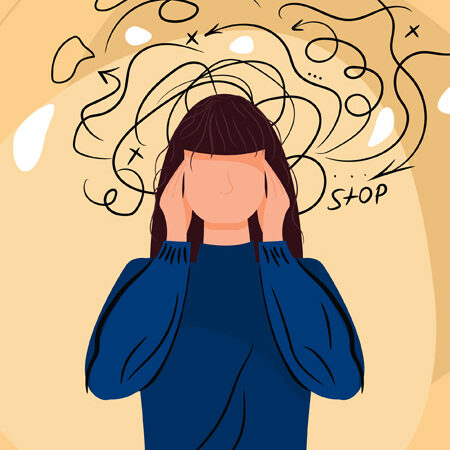This thing happened to you, beyond your control.
Now you are living with the effects of it.
At The Attached Counseling Collective, we have several therapists who can help those triggers reduce and calm your nervous system. You don't have to constantly live in fear.
It’s been so long since it happened.
So why can’t I get over it?
You made it through somehow; things should be better now.
But the nightmares still happen. Sometimes, you wake up sweating in a panic.
Feelings of distress cause you to have periods of restlessness, resulting in a lack of sleep or depression.
Flashbacks still take you right back to that same place.
You’ve fought so hard to get away from that event, but it keeps reappearing, causing those negative feelings to occur.
That awful thing happened to you, and no matter how hard you try to forget it, something triggers memories of that event as if it occurred again.
You spend so much energy trying to make sure it never happens again – but it doesn’t help.
Your mind takes you right back like you never even left.


Holding it together day in and day out is exhausting.
You’re so tired of having to fight to feel normal.
The people you should trust sometimes don’t know how to help, and you don’t see how they can help.
It’s almost impossible to communicate what you’re experiencing, much less how to stop it.
At this point, it seems impossible to move forward.
FAQ'S
FAQs on EMDR Therapy
EMDR therapy utilizes the brain to help reduce triggers that have been stuck due to past trauma. When we experience a trauma our brains are unable to process that experience and it is carried with us. In the present when we are triggered we will act as if we are in that unsafe situation again.
EMDR uses bilateral stimulations (BLS) to help get the brain unstuck. The goal is to desensitize the person to the triggers and help them reprocess the traumatic experience so they are no longer triggered. The goal is so that the trauma is no longer triggering in everyday experiences. The goal isn’t that you forget or don’t have emotion around it, but more about helping you function and feel less overwhelmed. EMDR is not hypnotherapy and you will still have control to stop at any time in the process. It is such a different way to approaching trauma which may feel different that traditional talk therapy but for some it can have long lasting positive effects.
OUR PROCESS
We make getting started with mental health services, easy.
Step One
Call us for a free 15 minute consultation to ask any and all questions.
Step Two
Get matched with one of our two therapists who are trained in EMDR.
Step Three
Schedule your session and start the process to relief.
Step Four
Your journey begins, the processing part of EMDR doesn't begin right away but your therapist will walk you through each part of the process.
Get help for the triggers and finally find relief.
Featured Posts
Learn from Our Expert Team of Counselors

5 Ways to Get the Most Out of Therapy
So you have started therapy. Eager to meet your goals and “do it right”. I hate to burst your bubble […]
Everyone struggles sometimes. Discover insights and advice to help you reconnect and thrive.


